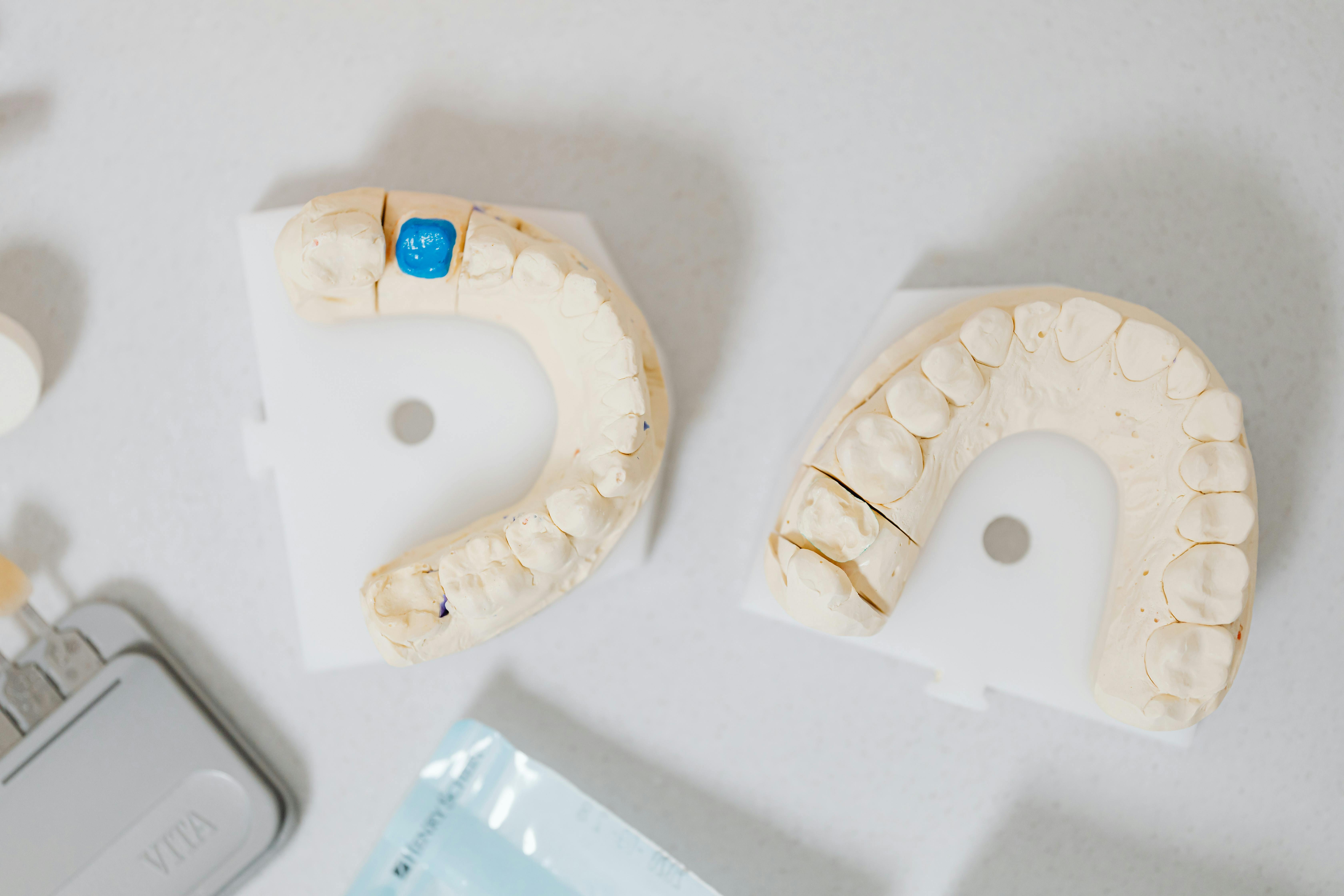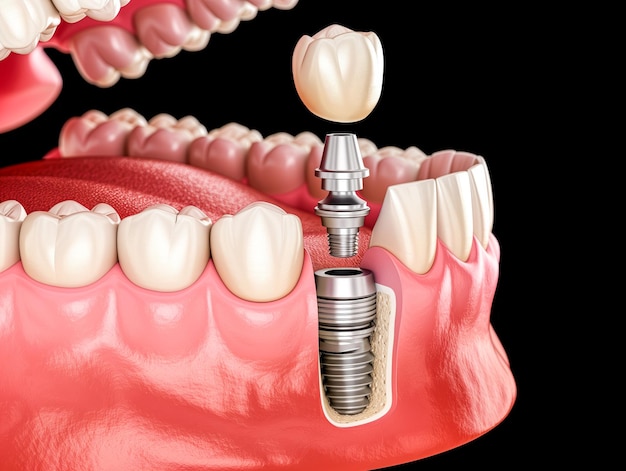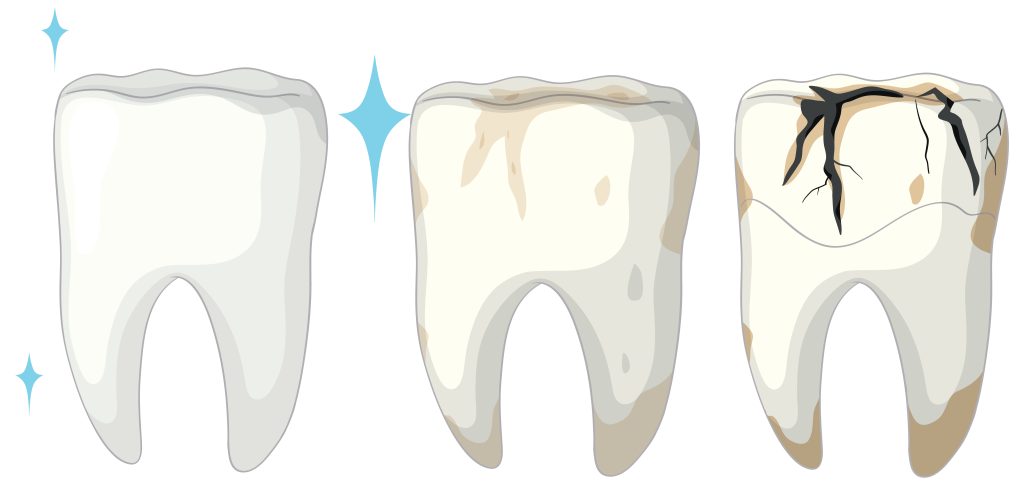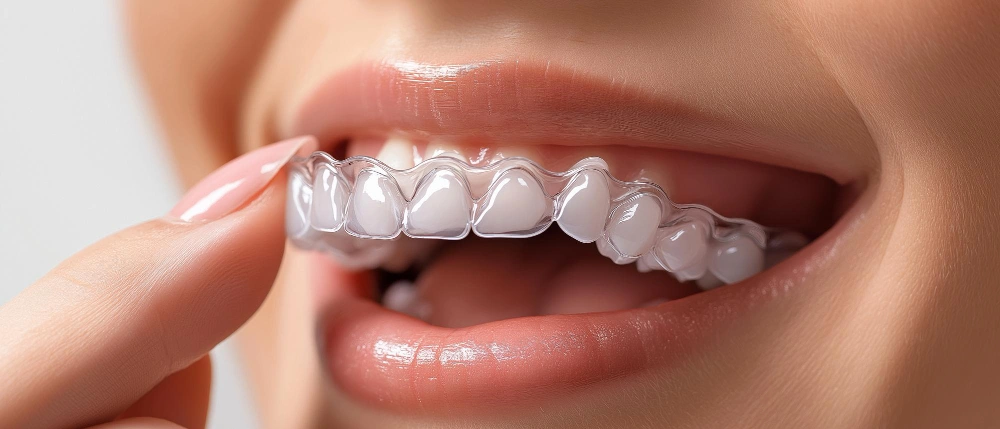TL;DR
- A tooth crown is a cap that strengthens a weak tooth while also improving its appearance and function.
- Dentists may recommend crowns for treating large cavities, correcting cosmetic issues, supporting dental bridges, or covering implants.
- Common types of crowns include metal, porcelain, porcelain-fused-to-metal (PFM), zirconia, and Emax.
- Same-day crowns are designed and placed in a single visit using CAD/CAM technology.
- The right crown depends on factors such as the tooth’s location, aesthetic goals, functional needs, and budget.
- With proper care, crowns can last 10–15 years or more.
What is a Crown for a Tooth?
When a tooth is extremely damaged or weakened, a crown for a tooth is often the best way to protect it and restore its function. A crown acts like a cap, covering the visible part of the tooth to give it strength and a natural look. Since there are different types of crowns made from materials such as metal, porcelain, and zirconia, choosing the right one can be tricky.
The right choice depends on where the tooth is located, how much pressure it takes while chewing, your budget, and the appearance you want. In this guide, we’ll walk you through the types of crowns, the procedure, aftercare, and costs so you can make an informed decision with your dentist.
Why is a Crown for a Tooth Recommended?
A dentist might suggest a crown for a tooth in the following situations:
- To support a tooth with very large cavities that cannot be successfully restored with fillings.
- To support a dental bridge.
- To protect a root canal–treated tooth from fractures and further damage.
- To mask or cover a severely discolored or misshapen tooth.
- To cover a dental implant.
Types of Crowns for Teeth
Dental crowns are made from various materials, each with different durability, aesthetics, and costs. Here are some common types:
- Porcelain or Ceramic Crowns: The most natural-looking, metal-free option, usually preferred for front teeth for aesthetics.
- Metal Crowns: The most common type is a gold alloy crown, but they can also be made from other metals such as stainless steel.
- Porcelain-Fused-to-Metal Crown: Combines the qualities of porcelain and metal. The metal element offers strength, whereas porcelain improves aesthetics.
- Zirconia Crowns: Made from highly durable ceramic zirconia and fabricated using CAD/CAM technology. They offer superior aesthetics and a precise fit.
- Lithium Disilicate (Emax): A durable ceramic that provides excellent translucency, meaning better aesthetics combined with strength.
Tooth Crown Materials: A Quick Comparison

Understanding the advantages and disadvantages of each material can help make a more informed decision.
| Material | Aesthetics | Strength | Pros | Cons |
| All Ceramic/ All Porcelain | Natural looking | Moderate (not ideal for back teeth | Best for cosmetic restorations | Requires more tooth reduction and has less durability |
| Porcelain Fused-to-Metal | Matches the tooth color | Robust and more durable | Ideal for both the front and back tooth region | Chipping of porcelain. A dark metal line may be visible at the gum line |
| Metal crowns | Metallic appearance | Very strong and durable | Long lasting and minimal wear to the surrounding tooth | Metal allergies. Not ideal for areas that are visible while smiling |
| Zirconia crown | Highly aesthetic | Very high strength | Resistant to wear. Ideal for both front and back teeth | Can be expensive |
| Lithium disilicate (E max) | Excellent translucency, offering better aesthetics | Tougher than zirconia | Less prone to chipping. Best for front teeth that require high strength | More expensive than other options |
Cost Comparison of Different Crowns
The cost varies depending on the selected material, the location of the dental clinic, the technology used (CAD/CAM), and any additional procedures such as root canals, posts, and core buildups.
On average, the cost of a crown in the US typically ranges between $800 and $3,000 per tooth. Porcelain and zirconia crowns are often at the higher end of this range due to their durability and natural appearance, while metal crowns may cost less.
What is the Procedure for Getting a Crown?

The process of getting a crown for a tooth is as follows:
- Initial Assessment: The dentist checks tooth health using X-rays.
- Tooth Preparation: This step involves reshaping the tooth and begins with administering anesthesia to prevent discomfort during the procedure. The tooth is reduced by 1-2 mm from all sides, removing enamel.
- Impression or Digital Scan: An impression of the prepared tooth is taken using impression materials or digital scans, which are then used to customize the crown.
- Temporary Crown: A temporary crown made from resin or acrylic material protects the tooth until the permanent crown is ready.
- Try-in and Permanent Placement: Once fabricated, the crown is checked for fit, shade, and bite alignment. After confirming all parameters, the crown is permanently cemented onto the tooth.
Longevity of Crowns and Aftercare
When maintained correctly, crowns can last 10–15 years or longer. To extend their lifespan, our dentists at Rivers Bend Family Dental recommend following these aftercare practices:
- Brush twice daily and floss regularly.
- Avoid biting on hard or sticky foods.
- Wear nightguards if you tend to grind teeth.
- Schedule regular cleanings to prevent plaque buildup.
Final Thoughts
The right crown for a tooth depends on each patient’s unique needs and preferences. Your dentist can help guide you toward the best option, considering your oral health, budget, and goals.
Are you ready to enhance your smile with a dentist in ramsey? At Rivers Bend Family Dental, we aim to align your expectations with your needs to create a personalized treatment plan for your desired outcomes.
Using advanced technologies like Glidewell.io and iTero, we offer precise same day crowns delivery, ensuring both comfort and speed.
Contact us today to schedule an appointment. Reach out to us at (763) 576-1855 or visit us at 14061 St. Francis Blvd NW, Ramsey, MN, 55303, United States, and start your journey toward a healthier, more confident smile today!
FAQs
What is a dental crown?
A dental crown is a cap used to envelope the affected tooth to regain both function and appearance.
Why is a crown necessary?
A crown helps prevent fractures, restores large cavities, and supports root canal-treated teeth. It also supports dental bridges and implants.
Does getting a crown hurt?
Usually, no. The procedure starts with numbing the treatment area. This helps reduce discomfort, making the process painless. Temporary crowns placed afterwards protect the teeth from sensitivity and damage.
Can I be allergic to crowns?
Most materials pose low allergy risks, but metal crowns can cause allergic reactions in some cases.






